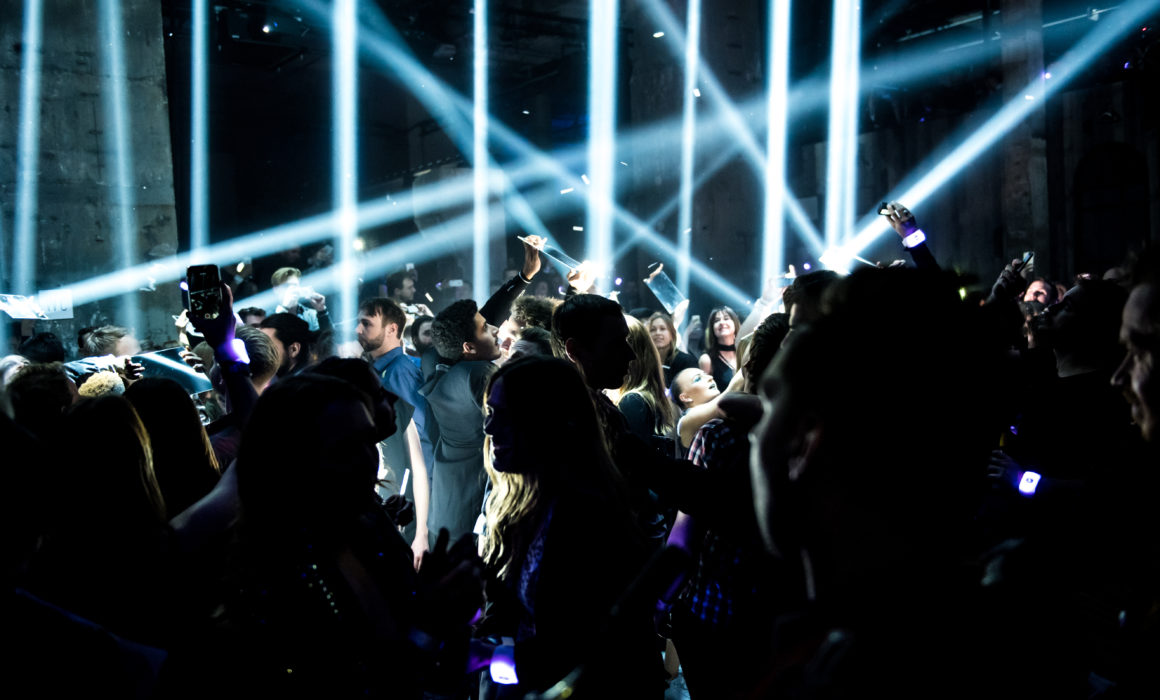Production Management: From Live to Hybrid Events
We spoke to our Production Manager Ky about how battleROYAL‘s digital shift affected her personal work. Ky‘s experiences exemplify the way in which moving from live to hybrid events had most of our staff reinterpret their role completely.
battleROYAL: How would you describe your role at battleROYAL before COVID-19?
Ky: My job varies a lot, it can be a classic production stage manager position, a production manager, a show caller, a stage manager, a speaker coach or any combination thereof, depending on the project. And it still does.
In a live event for instance, I’ve been a version of a stage manager – having meetings with the production teams, the lighting designer, the senior designer, the costume designer, maybe a makeup designer. And talking to the technical supervisor about the stage, the video design, these sort of things.
battleROYAL: What has changed overall through moving to hybrid events?
Ky: Live event specialists like bR are having to quickly adapt their skills to a new playing field with its own set of rules and pre-existing structures.
From a live event standpoint we are dealing with dynamic new technologies, and in a completely new (green) terrain. It’s challenging and exciting, all at the same time. Personally I’m currently adapting my live event vocabulary to a film field and discovering parallels and differences in our understanding of these definitions. Positively it’s reassuring to find that a clear and constant communication will always clear up such grey areas quickly, no matter what team I’m in or what type of event I’m supporting.
So for example: I’m learning in a green screen environment that my lighting department doesn’t need a great deal of production time, however our video / AR / VR departments are extremely critical players in the team.
I am still managing the whole production process. But you essentially have two venues, you’ve got a mixed reality studio in which you produce and film the content, then you’ve got the place where it’s hosted, on digital platforms.
battleROYAL: What does managing a platform „venue“ and a mixed reality studio „venue“ involve so to speak?
Ky: I find it privately amusing to try and find parallels between hybrid events and classic production. For example our platform provider development process is quite similar to an event location scouting,–obviously something to be done early in the process but the decisions made then also affect our user journey considerably, just as an impressive location resonates with our guests. In both cases our event vision must be clear early and stay constant in order to find a suitable platform and adapt platform programming.
And although we can now add neat features it must always be a priority that a digital platform provides our guests with a clear and supportive user journey.
battleROYAL: Does anything stand out within the digital realm that you didn’t consider before?
Ky: Amazing for me is the realisation that, in a digital world, there are no more natural rules! Our creativity has literally no bounds. We don’t have to consider physical borders such as physics, gravity, motor transport times, elevators and wind conditions… but still I find myself sometimes checking the digital floor to see if it is clean and showing any footprints. And a roll of green gaffer tape is new to my onsite production toolbox, I must admit.
battleROYAL: And in terms of shooting itself? On location, what is different?
Ky: With a live event, you’ve got this whole picture in front of you. The stage, all the light effects etc. In a mixed reality studio as your onsite location, you’ve now got cameras, which allow you to really focus on just one thing. This creates new possibilities but also a new responsibility to always consider the user’s view through the camera lens. I feel that it’s our responsibility as a creative production team to remember that our guests are watching us closely in a 2D environment. They are also much closer at times than we are used to, so attention to detail becomes important. The use of the cameras, in terms of where the cameras are pointing, keeps the story engaging.
battleROYAL: How do you experience these changes?
Ky: New. Unfamiliar. Exciting. Every day is a school day. Team structures have changed as well. I’m relying more on our technical experts to make sure that all technical players can work together and that everyone is hearing and seeing what they need to see to get their part of the job done.
It’s a lot of learning by doing and sort of getting thrown into the pool. But I have a little bit of a TV background back in my high school days, so it’s exciting to be coming back to that after all this time.


